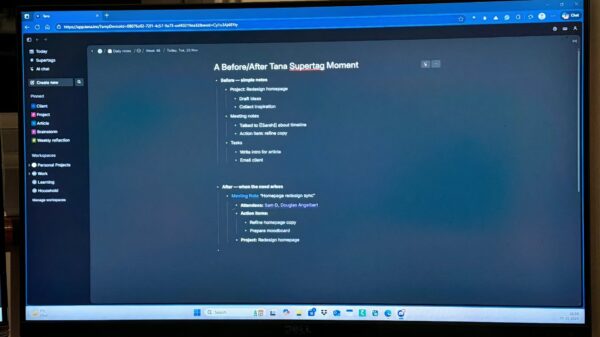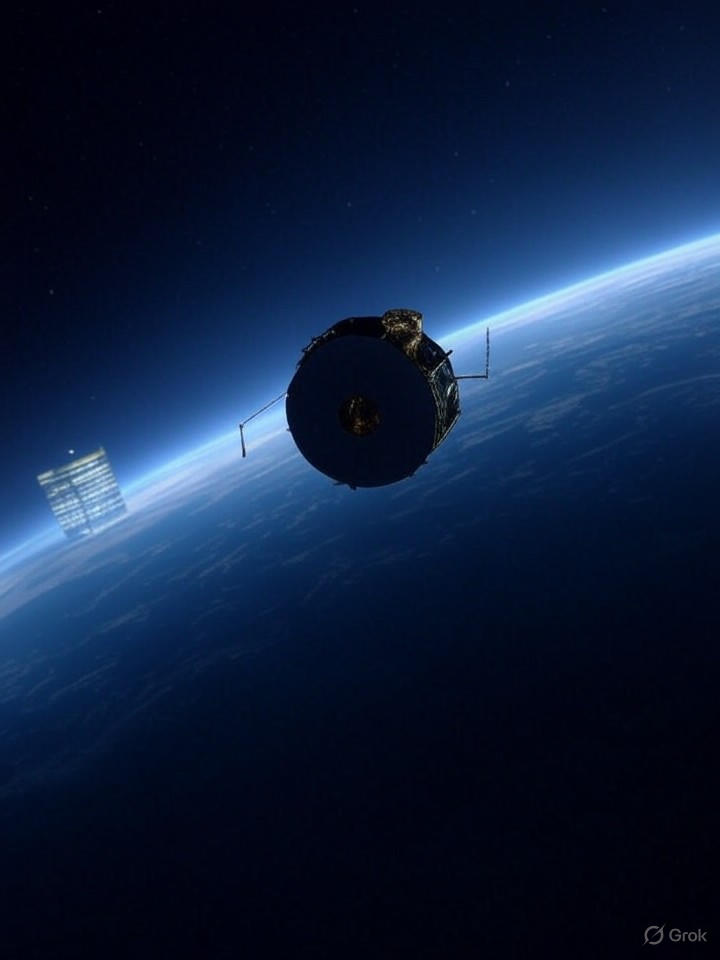UPDATE: The European Union is taking immediate action against GPS jamming threats, announcing a significant deployment of additional satellites in low Earth orbit (LEO) to enhance navigation security. This urgent move comes after a GPS jamming incident involving European Commission President Ursula von der Leyen during a flight to Bulgaria on Sunday, October 22, 2023.
Officials confirm that the EU is ramping up its defenses amid rising concerns over deliberate disruptions believed to be linked to Russia. The jamming incident has underscored vulnerabilities in critical navigation systems, prompting swift action from the bloc to bolster its space security infrastructure.
During a press conference on Monday, EU Defence Commissioner Andrius Kubilius highlighted the necessity for improved detection capabilities alongside a more robust satellite network. “This incident is a wake-up call for the EU,” he stated, emphasizing the urgent need to protect high-level travel and vital civilian infrastructure.
The GPS jamming of von der Leyen’s aircraft is part of a broader pattern impacting aviation, maritime, and military operations across Europe. Reports indicate an alarming increase in GPS spoofing and jamming incidents from Finland to the Mediterranean. The EU suspects these disruptions are intentional, with a clear link to rising geopolitical tensions.
In response to these threats, the EU plans to integrate the new LEO satellites with existing systems like Galileo, providing redundant signals that are significantly more difficult to jam. This hybrid approach leverages advanced anti-jamming technologies to defend against electronic warfare tactics.
Industry experts advocate for the use of LEO constellations due to their lower latency and stronger signals, making them an ideal solution for countering the increasing risks of electronic interference. This development marks a pivotal shift in how the EU approaches its satellite security strategy.
Beyond immediate defenses, this initiative reflects the EU’s ambition for strategic autonomy in space. Posts on social media platforms like X (formerly Twitter) emphasize the bloc’s commitment to developing its satellite networks, including the €10.6 billion IRIS2 project, which aims to provide encrypted internet connectivity as an alternative to systems like Starlink.
As this situation develops, the EU is also enhancing its detection tools, potentially utilizing AI-driven analytics and fostering international cooperation to identify jamming sources in real-time. However, implementing these enhancements faces challenges, including budgetary constraints and technological integration hurdles.
Reports indicate that the deployment of these satellites will focus on low and medium Earth orbits, with operational readiness targeted by the end of the decade. This timeline coincides with broader global advancements in satellite technology, as outlined by the Space Force in its anti-jamming upgrades.
Geopolitically, these developments could further strain relations with Russia, which has denied any involvement in recent incidents. However, the EU’s proactive stance positions it as a leader in space resilience, which may influence global standards for satellite security.
The ripple effects in the aerospace and defense sectors are already becoming apparent, as firms like Kratos Defense develop GNSS-based systems designed for contested environments, aligning with EU procurement needs. The EU’s investments signal a crucial shift toward fortified space assets, essential for maintaining economic and security stability amidst escalating electronic threats.
As the EU prepares for these deployments in 2025 and beyond, industry insiders and global observers will closely monitor how these measures evolve in response to ongoing conflicts and threats.






































































